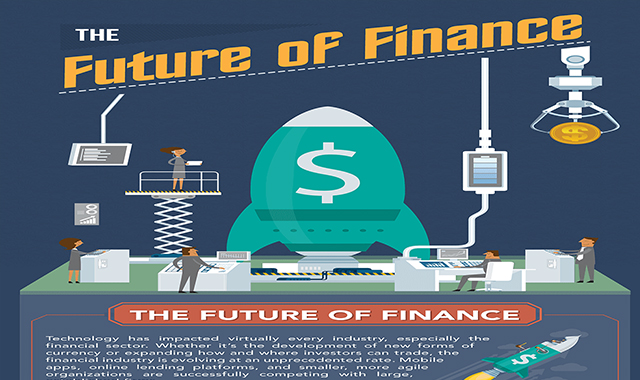The financial services industry has undergone a tremendous transformation in recent years due to the rapid advancement of technology. With the rise of mobile devices and the internet, financial institutions are now able to offer services and products that were once unimaginable. In this article, we will explore the impact of technology on financial services and the future of finance.
The Rise of Fintech
The term Fintech refers to the use of technology to provide financial services. Fintech companies are disrupting the traditional financial services industry by offering innovative solutions that are faster, cheaper, and more convenient. These companies are leveraging technology to create new products and services that are changing the way we interact with money.
 Source: bing.com
Source: bing.comThe Adoption of Mobile Banking
Mobile banking has become increasingly popular in recent years, with many people opting to do their banking on their mobile devices. Mobile banking apps allow customers to check their account balances, transfer money, pay bills, and even deposit checks remotely. This has made banking more convenient for customers and has allowed financial institutions to reduce their operating costs.
 Source: bing.com
Source: bing.comThe Emergence of Blockchain
Blockchain technology has the potential to revolutionize the financial services industry. Blockchain is a decentralized ledger system that allows for secure and transparent transactions without the need for intermediaries. This technology has the potential to reduce fraud and increase efficiency in financial transactions.
 Source: bing.com
Source: bing.comThe Use of Artificial Intelligence
Artificial intelligence (AI) is being used in the financial services industry to improve customer service, automate processes, and detect fraud. AI-powered chatbots are being used to provide customer support, while machine learning algorithms are being used to analyze data and identify patterns that can help financial institutions make better decisions.
 Source: bing.com
Source: bing.comThe Importance of Cybersecurity
With the increased use of technology in financial services, cybersecurity has become a major concern. Financial institutions are investing heavily in cybersecurity to protect their customers' data and prevent cyber attacks. This has led to the emergence of new cybersecurity technologies and protocols, such as biometric authentication and blockchain-based security.
 Source: bing.com
Source: bing.comThe Impact on Employment
The adoption of technology in financial services has led to job losses in some areas, such as tellers and back-office staff. However, it has also created new job opportunities in areas such as software development and data analysis. As technology continues to evolve, it will be important for financial institutions to invest in training and development to ensure that their employees have the necessary skills to adapt.
 Source: bing.com
Source: bing.comThe Future of Finance
The future of finance is likely to be shaped by technology. As customers continue to demand faster, cheaper, and more convenient financial services, financial institutions will need to continue to innovate and adopt new technologies. This will require significant investment in research and development and a willingness to take risks.
Some experts predict that in the future, financial services will be completely digital, with no physical branches. Others predict that the rise of Fintech will lead to a consolidation of the financial services industry, with larger institutions acquiring smaller ones. Regardless of what the future holds, one thing is clear: technology will continue to play a major role in the financial services industry.
Conclusion
The impact of technology on financial services has been significant and will continue to be so in the future. Financial institutions that are able to innovate and adopt new technologies will be better positioned to compete in the market and meet the needs of their customers. However, it will be important for these institutions to balance the benefits of technology with the need for cybersecurity and the impact on employment.

